Tenants of Crown Heights Jewish Hospital Complex Wary as City and Landlord Work Out Deal
Landlord Alma Realty and the City say they are close to a deal that will offer some 700 tenants in Crown Heights rent-stabilized leases.

A rally and press conference earlier this month. Photo via Brooklyn Jewish Hospital Tenant Association
When Andrew Cahill moved into the Jewish Hospital complex, off Classon Avenue in Crown Heights, he had a clear understanding with his landlord: His apartment was rent regulated. That didn’t change as he moved from one of the six buildings to another in 2011, as the complex manager informed him and his then-girlfriend the terms of the lease wouldn’t change.
They ultimately signed a one-year lease that included a rider: It stated rent stabilization at 545 Prospect Place was contingent on a tax abatement offered by the city in exchange for providing affordable apartments. Cahill had every reason to believe, from his landlord, that the tax abatement was in place, and paid a regulated rent for the next several years.
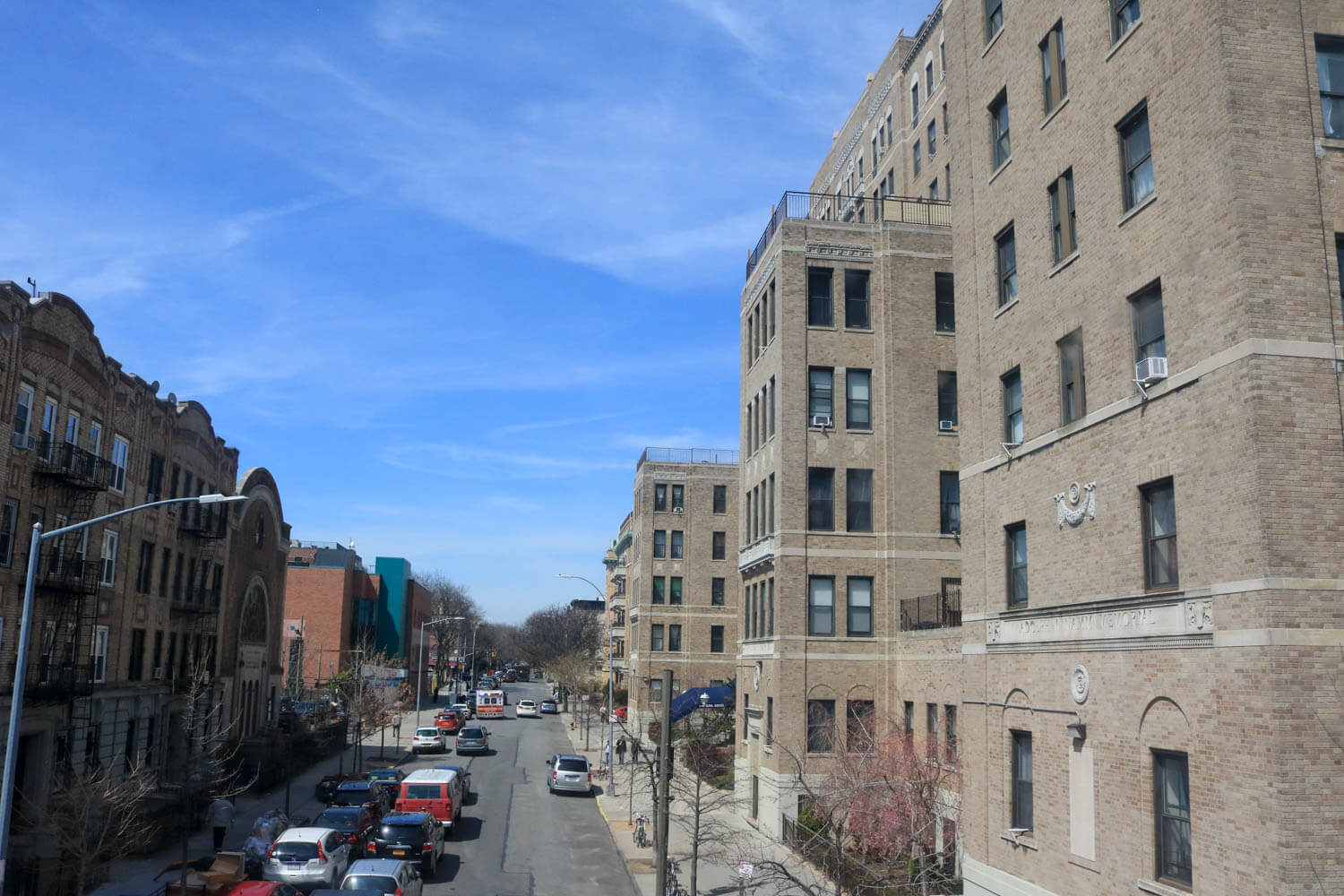
But in May of 2016, all that changed. Cahill was up for a lease renewal and asked his landlords, Alma Realty, to send one. Alma told him his rent would follow the regulation guidelines — which stipulated a rent freeze on all stabilized apartments for the year — but offered up a market-rate lease.
Cahill agreed to the terms but asked for a rent-stabilized lease; Alma never followed up. Though he continued to pay his rent, Cahill found notice of termination of a month-to-month tenancy taped on his door by August.
“I immediately let them know I’m not a month-to-month tenant,” Cahill said. “And they never really followed up, and continued to cash my rent checks. But in November they sent me another notice of termination and starting returning my checks. On December 1st, they filed in housing court.”
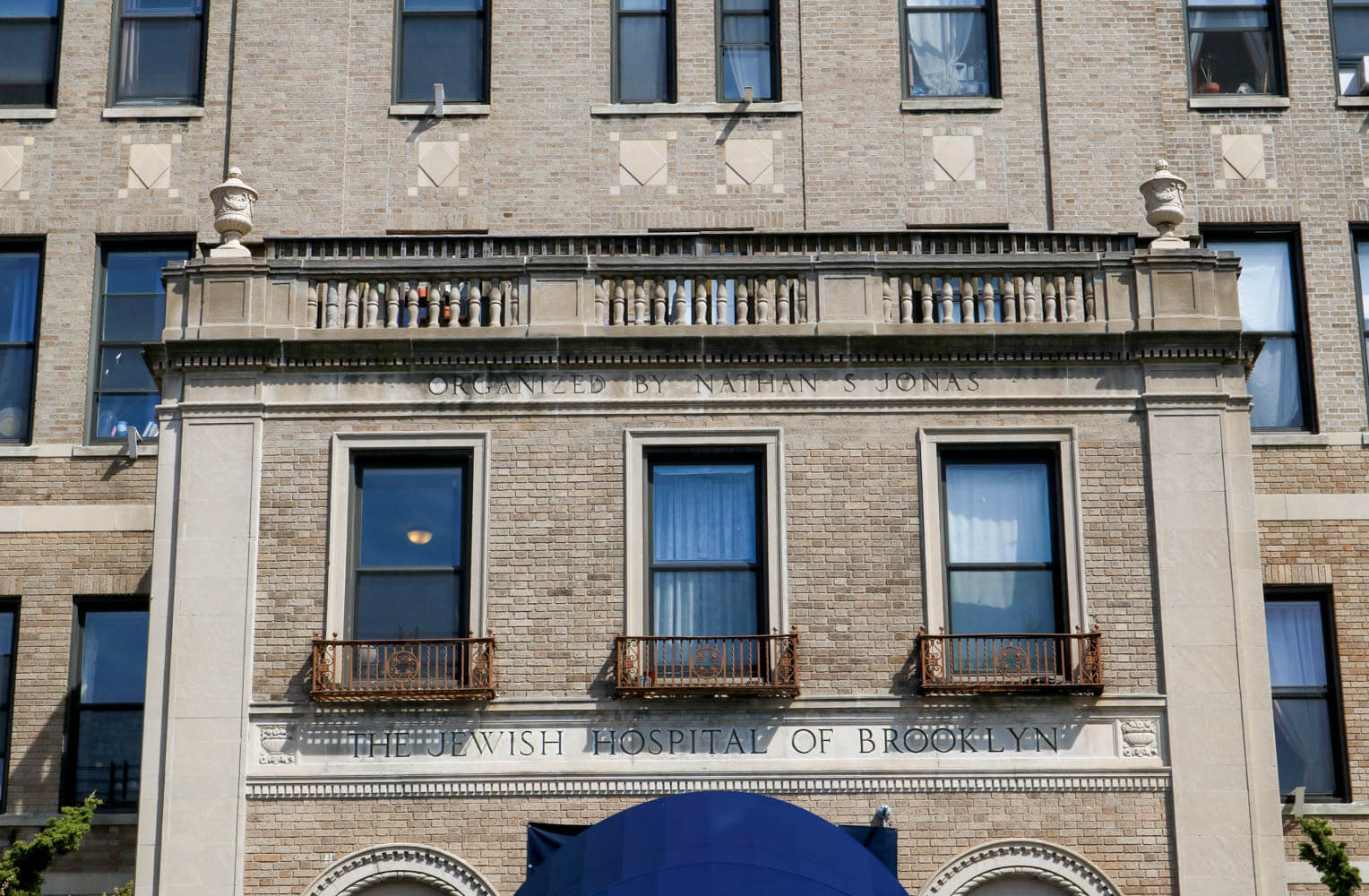
Cahill is one of many tenants at the Jewish Hospital engaged in a confusing, years-long battle with the building owners, Alma Realty. The complex first made headlines back in 2014, when some shocked tenants received notices that they had to pay market-rate rents, with Alma stating tenants never should have received discounts in the first place.
After pushback and pressure from residents and local pols, Alma agreed to enter an agreement with the city to officially rent-regulate the complex. And despite headway toward doing so, the complex remains in a state of limbo.

The Jewish Hospital complex was originally the Brooklyn Jewish Hospital, built from 1901 to 1927. By the 1950s it was one of the largest and most respected medical complexes in Brooklyn.
But after the hospital filed for bankruptcy in 1979, the buildings sat abandoned for years. Alma took over the complex in the early 2000s, renting out the nearly 700 units to tenants who were offered a rider from Department of Housing and Community Renewal promising apartments were rent stabilized and protected under the Emergency Rent Stabilization Act.

What Alma wasn’t upfront about, however, was that formally rent stabilizing the building was contingent on Alma reaching an agreement with the city’s Housing Preservation and Development (HPD) to receive a J-51 tax abatement. Alma would go on to claim that they stopped offering below-market rents to the tenants after the company failed to receive such a tax abatement from the HPD. The HPD, however, said Alma had applied for the abatement but failed to meet several deadlines during the application process.

Early residents feel they were a part of a dishonest “bait and switch” before the neighborhood began to rapidly gentrify. “Alma, after they first applied [for rent regulation], began to issue rent-stabilized leases and continued this practice well into 2013,” said Mariano Muñoz-Elías of the Brooklyn Jewish Hospital Tenant Association. “They were not gonna get any more money from new tenants moving into this area during that time anyway… in fact, that was their selling point when advertising vacancies: ‘rent-stabilized apartments.’”
“Maybe I wouldn’t have moved to Crown Heights if I didn’t have this great deal and a rent-stabilized lease,” said tenant Alexandra Lotero, who moved in with roommates in 2013. “They brought people in on that premise, especially when Crown Heights was less expensive. They contributed to bringing people in, making this a desirable neighborhood, and as soon as rents skyrocketed, they turn around and try to capitalize on that move in the market.”
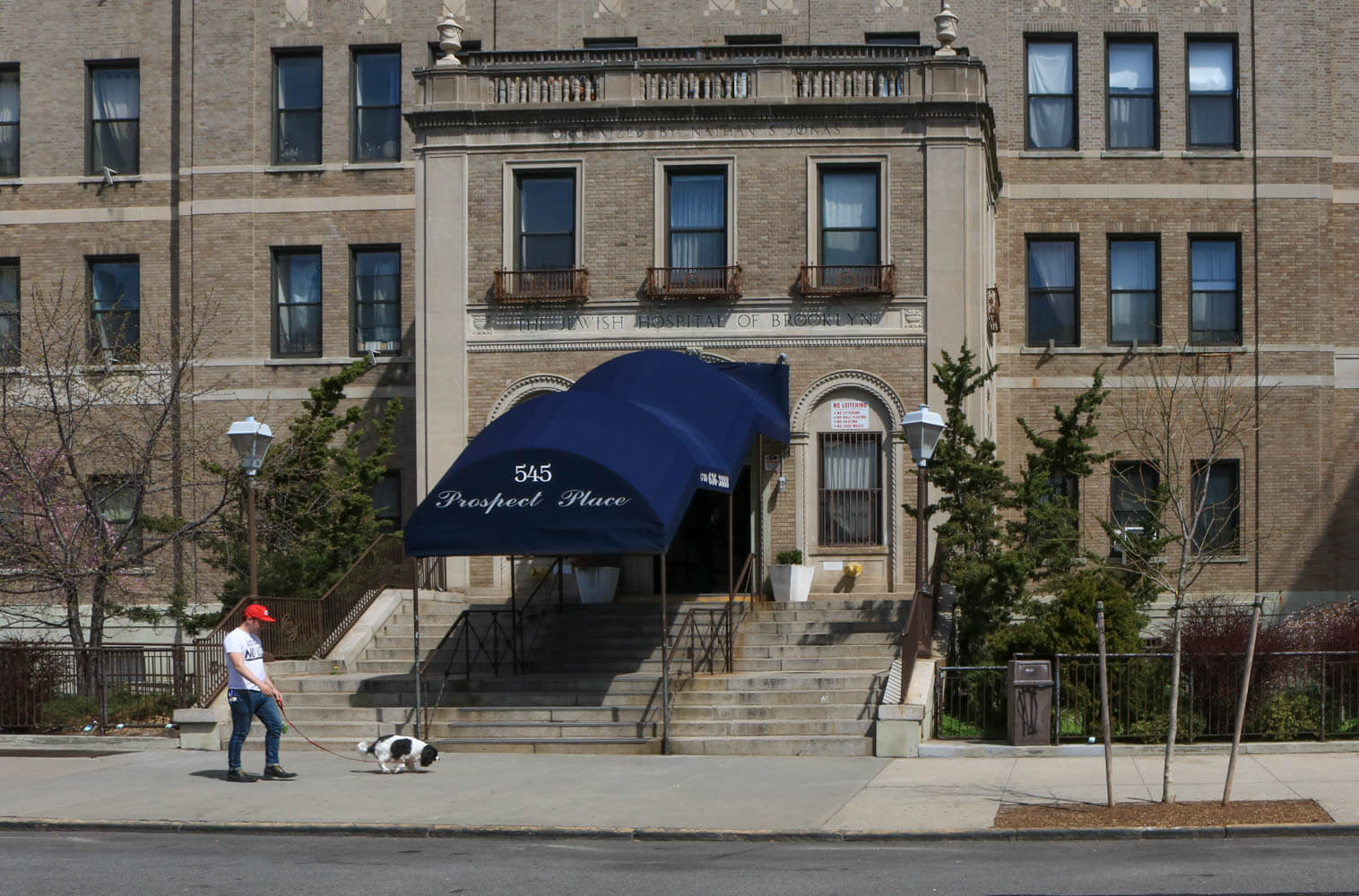
By 2014, tenants say, real estate prices were high enough in the neighborhood that Alma abandoned the rent-stabilized marketing, and began to charge market-rate prices. “When the real estate prices of this part of Crown Heights — now called Prospect Heights — went through the roof, Alma began issuing market-rent leases, some of them with a 10 to 20 percent rent increase from one year to another,” Muñoz-Elías said. “This was a blatant example of bait and switch.”
Such a turnaround was highly unusual: Assemblyman Walter Mosley, who has supported the tenants, told DNAinfo back in 2014, “This is very unique. The city has never seen this before.”
That year, 2014, also happened to be when Mayor de Blasio introduced his Housing New York plan with the goal to preserve or build 200,000 units over the next 10 years. Stabilizing the complex would contribute nearly 700 units to his ambitious plan.
At the first press conference tenants held, “everybody was there,” Muñoz-Elías said. At the time, Alma was also looking for approvals from the city to build the massive Astoria Cove development in Queens, “and we used that leverage to our advantage,” he said.
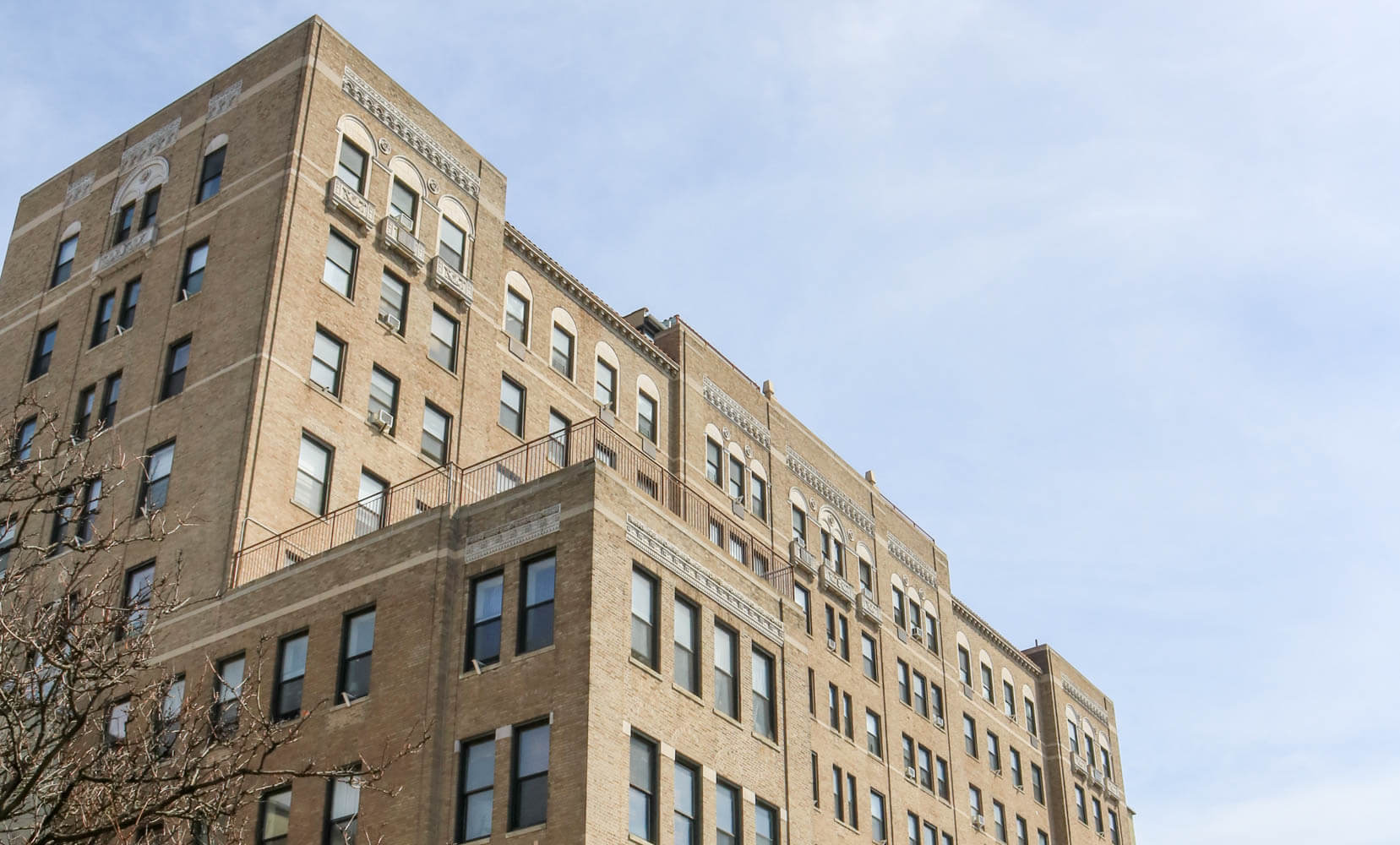
Under pressure from the tenants association and local pols, Alma Realty agreed to unusual lease terms for many of its apartments after their practice became known, residents say. The company agreed to adhere to the rent board guidelines despite tenants signing market-rate leases.
“When were were getting ready to resign our lease, Alma reached an agreement they would raise the rent only to rent-stabilized percentages while we worked through whatever would be decided,” tenant Sarah Clark, who lives in a one-bedroom with her husband, said. “Our lease is market rate, but it hasn’t gone up through any market-rate increase, so far.”
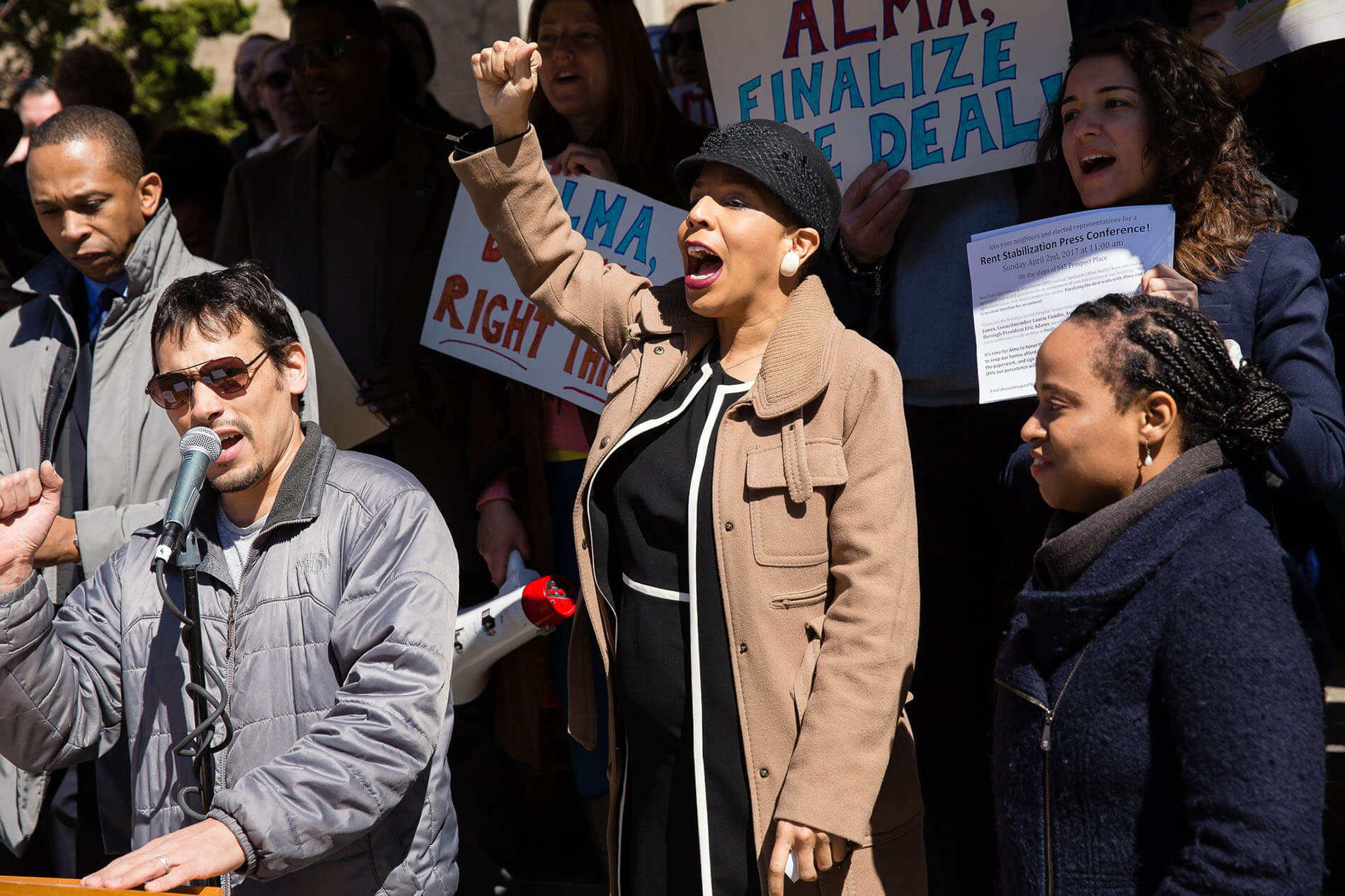
Council Member Laurie Cumbo, who has also worked with tenants, said that “to the best of my knowledge, Alma has been forthcoming with information and kept up their end of the bargain not to give market-rate increases to existing leases.”’
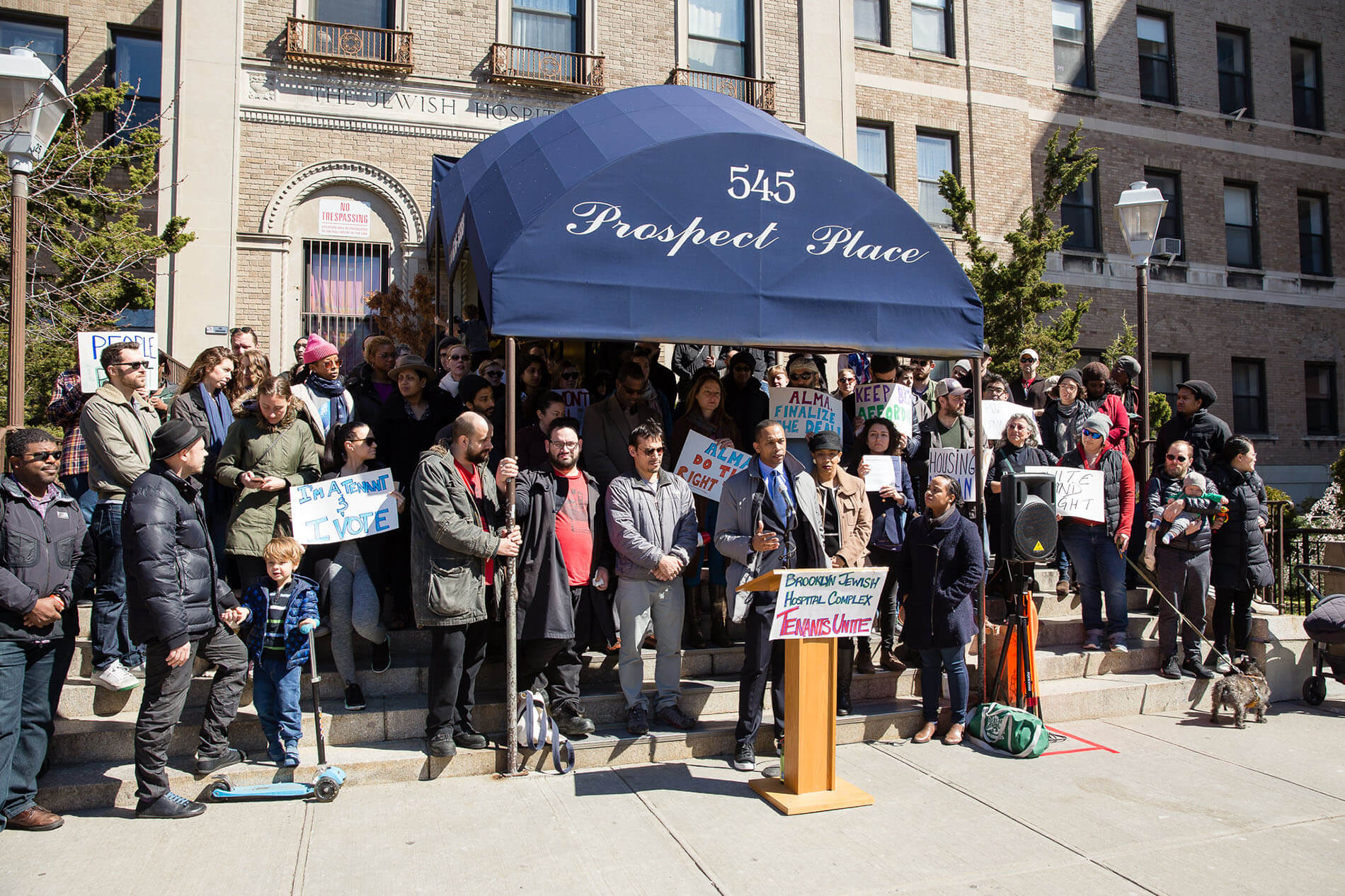
Still, she conceded, “the residents have continued to live in limbo.” In May of last year, it was reported that the city was close to making a deal ensuring the complex would become formally rent stabilized and stay that way for at least 30 years. The deal never happened. Frustrated, tenants held a rally calling out the delay this month.
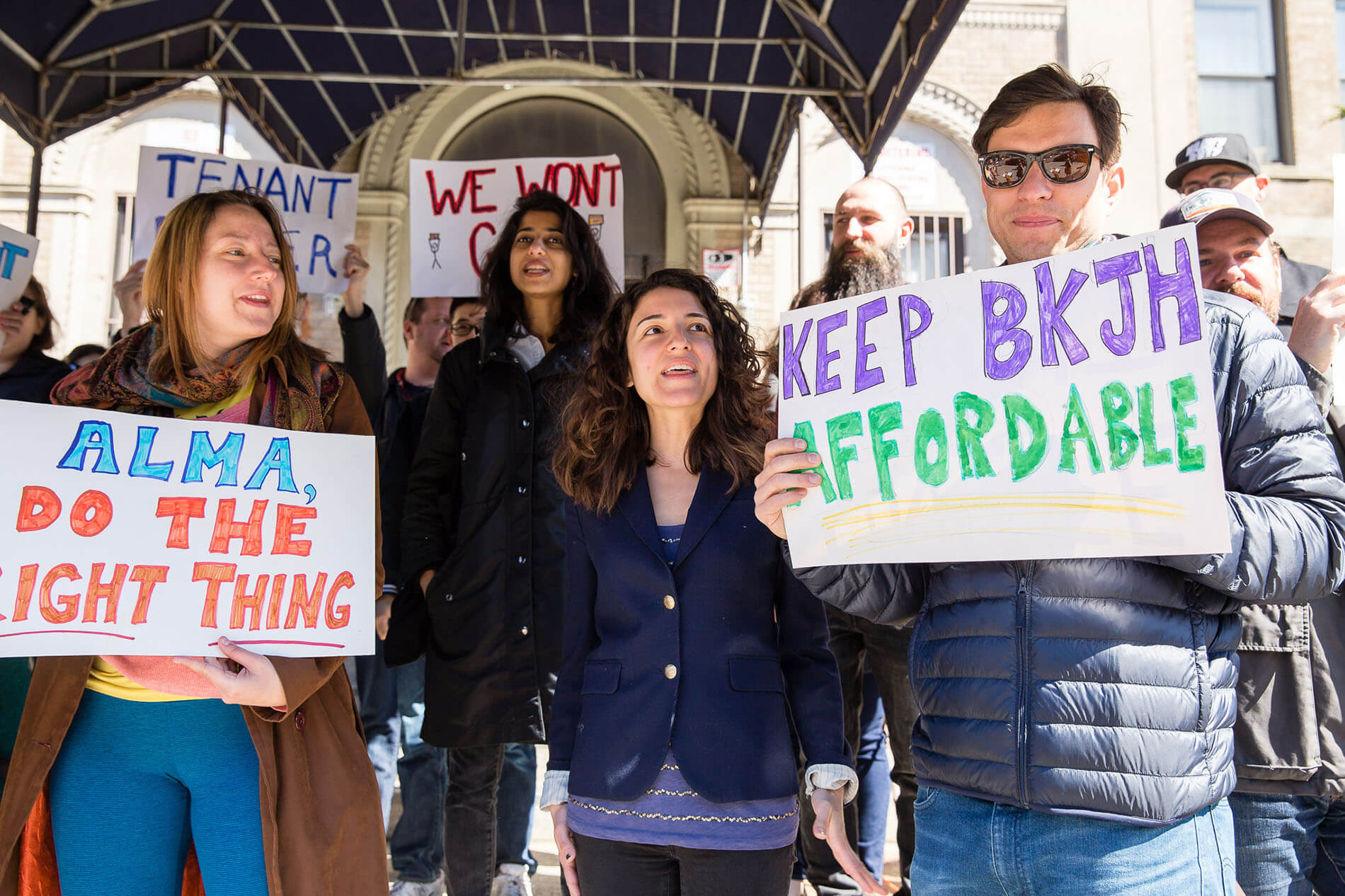
Tenants wonder if Alma has stalled the process in hopes of higher tenant turnover, resulting in increasing rents. “We feel that they’ve been buying time to keep turning units over, have old tenants move out and bring in new tenants unaware of the rent-regulation agreement,” Muñoz-Elías said. And if Alma ever decided to sell the complex, it would be worth much more with fewer rent-regulated tenants.
But the Queens-based real estate company, who declined an interview, committed to rent regulation in a statement: “We are very pleased to have been able to reach an agreement that creates hundreds of affordable units in Crown Heights and will grant current and future tenants rent stabilization going forward. We expect the documents to be finalized in the coming weeks and to begin offering tenants their new, stabilized leases.”
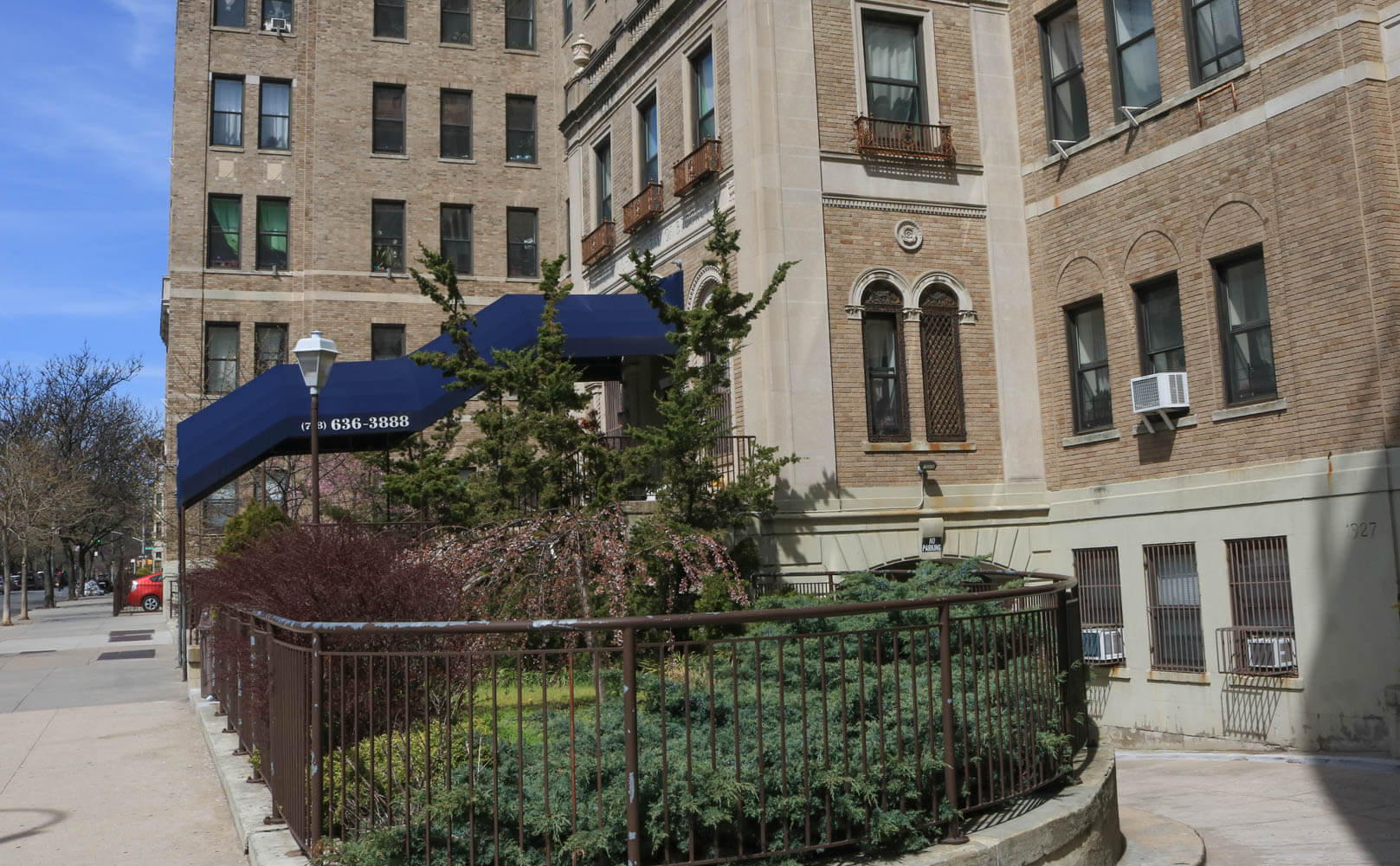
Council Member Cumbo echoed that a deal was expected to be reached “by late April, early May.” She called this “an incredible opportunity to create real affordable housing for almost 700 families in Crown Heights.”
The residents Brownstoner spoke with — all of whom accused Alma of confusing or nonexistent communication — aren’t convinced by this latest timeline. “I’m very skeptical they’ll sign this new deal,” Cahill said.
“Alma usually says the right thing,” Muñoz-Elías said. “But then we see tenants with crazy rent increases, Alma claims it was a mistake and then sends them a new lease with less of an increase.”
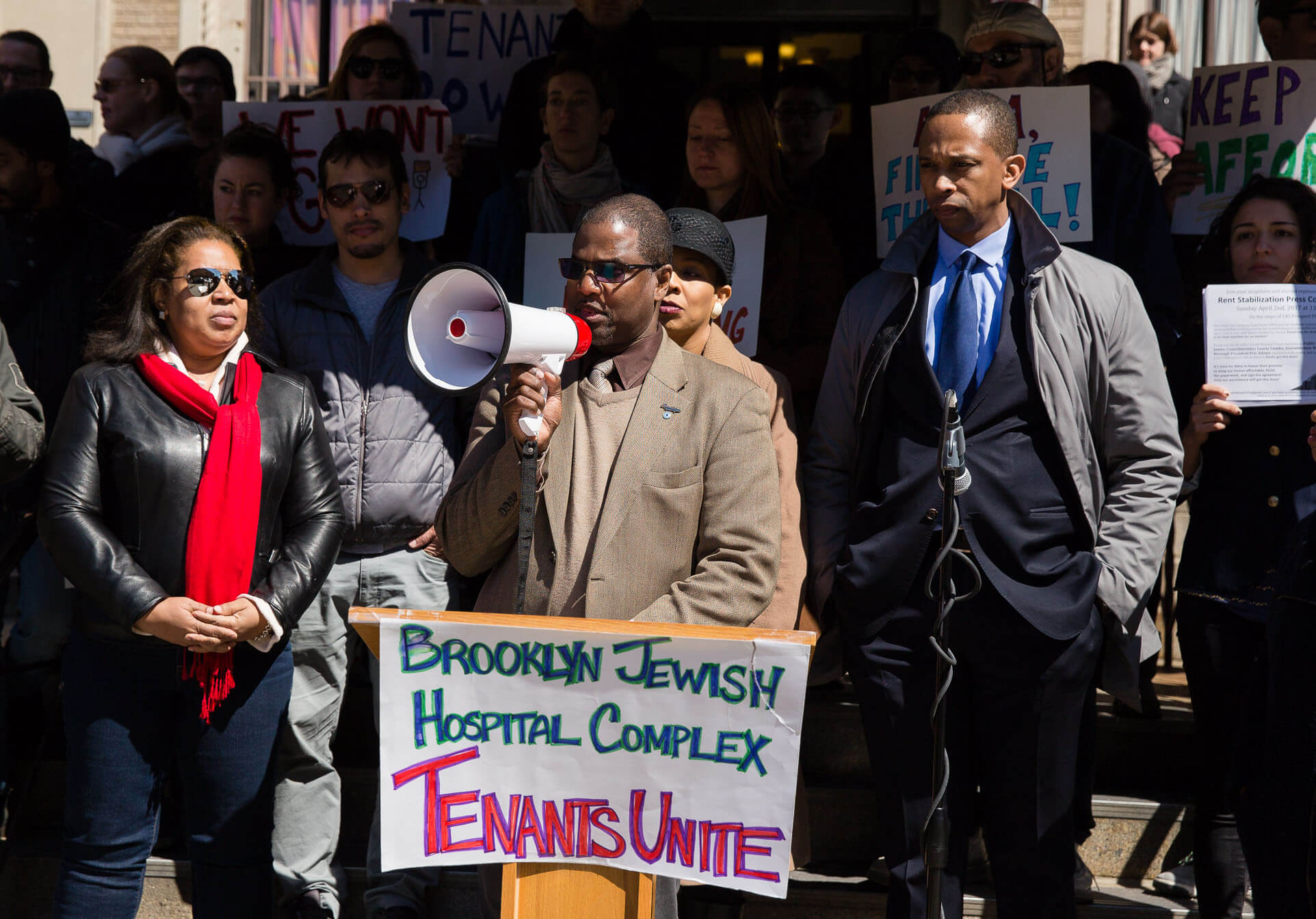
“We are kind of exhausted after [the latest press conference],” Muñoz-Elías said, “But we’re keeping the pressure on to see this deal is finished.”
Related Stories
- Building of the Day: 555 Prospect Place
- Charity Starts at Home
- Past and Present: Nurses’ School, Jewish Hospital
Email tips@brownstoner.com with further comments, questions or tips. Follow Brownstoner on Twitter and Instagram, and like us on Facebook.

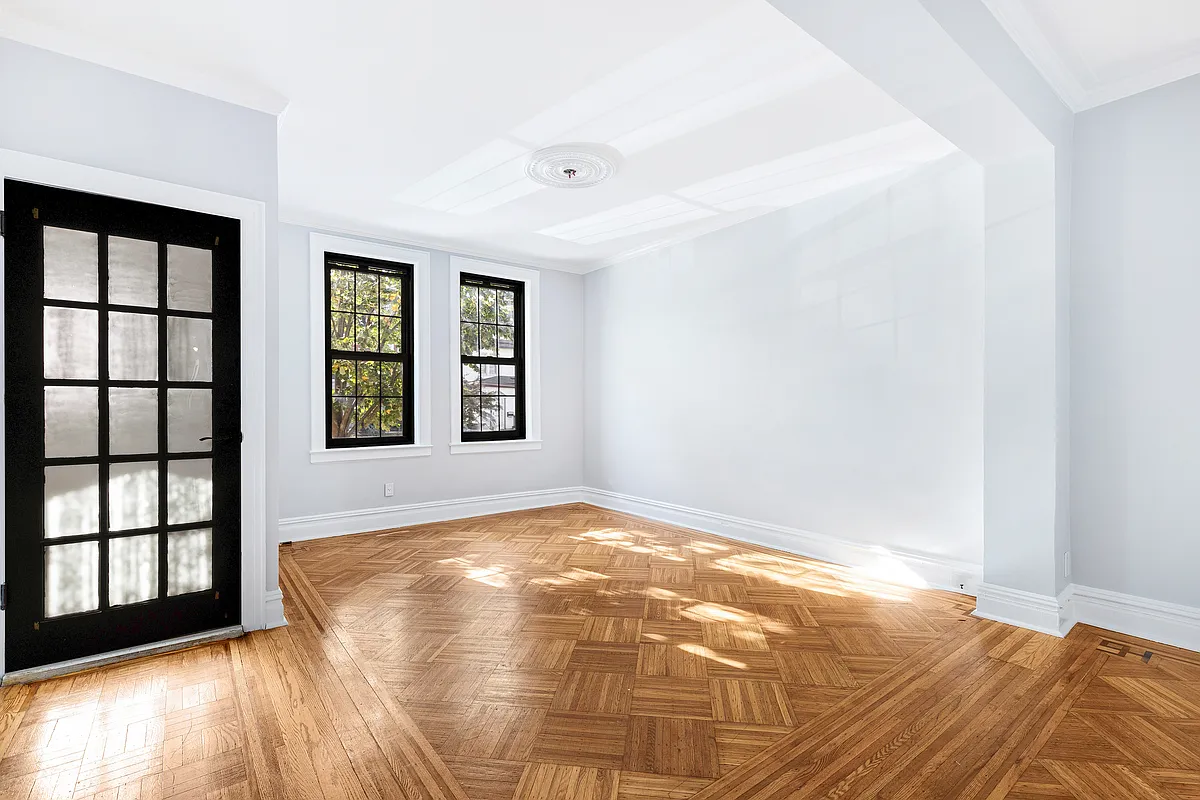

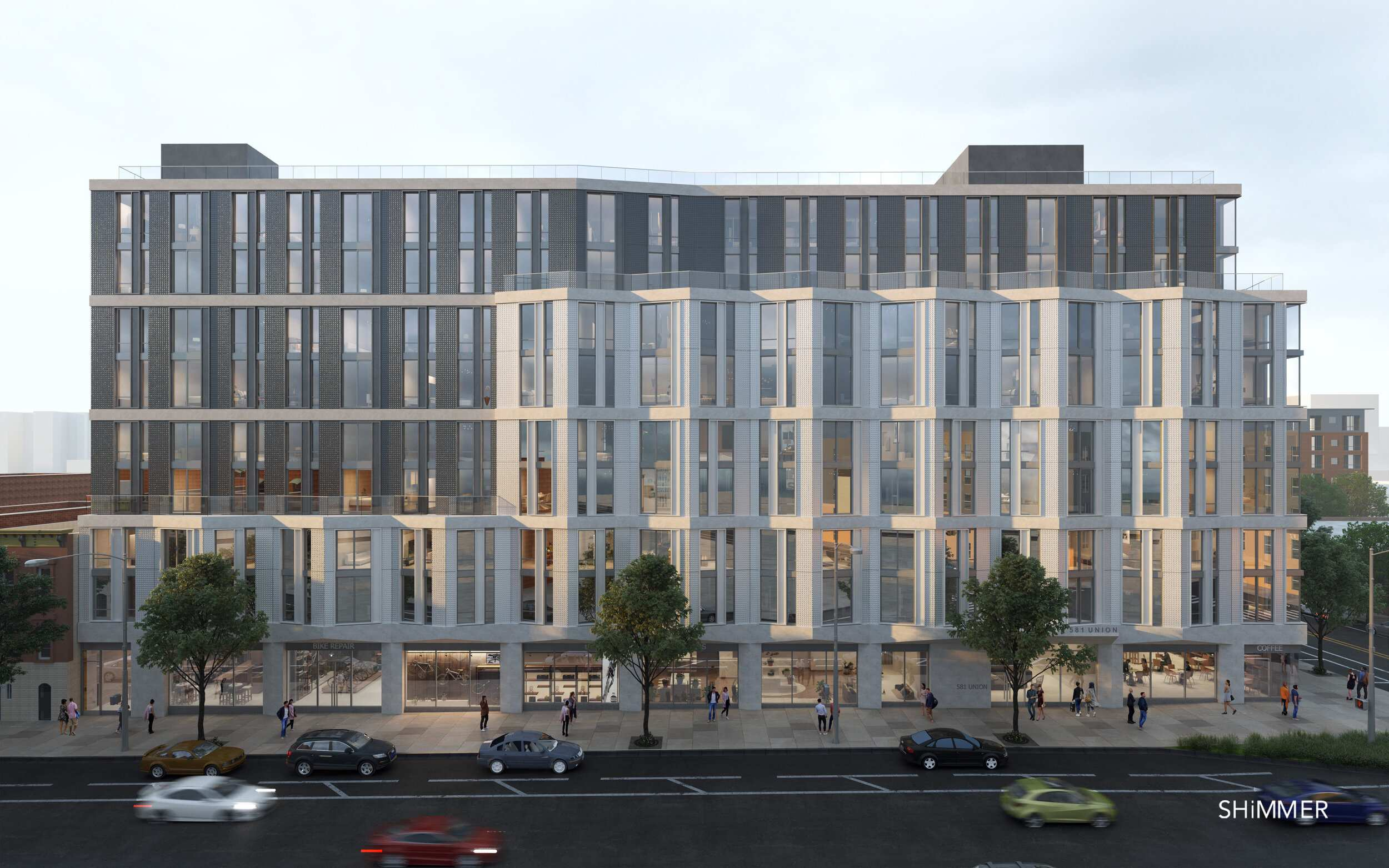





What's Your Take? Leave a Comment